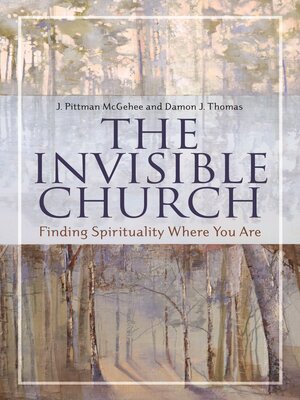The Invisible Church
ebook ∣ Finding Spirituality Where You Are · Psychology, Religion, and Spirituality
By J. Pittman McGehee

Sign up to save your library
With an OverDrive account, you can save your favorite libraries for at-a-glance information about availability. Find out more about OverDrive accounts.
Find this title in Libby, the library reading app by OverDrive.



Search for a digital library with this title
Title found at these libraries:
| Loading... |
While nearly half of Americans identify themselves with a fundamentalist brand of religion, and a sizable minority has rejected religion altogether, there is a vast middle ground. This book is aimed at that huge group of people who describe themselves as spiritual but not religious. In other words, people who are open to encountering the divine and the transcendent, and indeed actively seek these experiences. The authors help readers improve their understanding of the religious nature of the psyche, the origins of myths and religions in the collective unconscious, and the ways in which organized religion has often worked to infantilize its followers. They leave the reader with an empowered ability to claim his or her own spiritual authority and lead a more abundant, authentic life.
Many of those who have left organized religion have done so because it has hurt them in some way or because it failed to address their needs, yet they maintain a strong yearning to reconnect with the divine and transcendent level of human existence. As religious fundamentalism continues to influence so much of our national discourse, and as atheistic books rank high on bestseller lists, the time has never been more crucial for a book to address a third way between fundamentalism and atheism - a way that encourages readers to connect with their true religious nature, while at the same time maintaining their intellectual integrity and claiming their own authority. McGehee and Thomas offer that third way.
Many of those who have left organized religion have done so because it has hurt them in some way or because it failed to address their needs, yet they maintain a strong yearning to reconnect with the divine and transcendent level of human existence. As religious fundamentalism continues to influence so much of our national discourse, and as atheistic books rank high on bestseller lists, the time has never been more crucial for a book to address a third way between fundamentalism and atheism - a way that encourages readers to connect with their true religious nature, while at the same time maintaining their intellectual integrity and claiming their own authority. McGehee and Thomas offer that third way.






